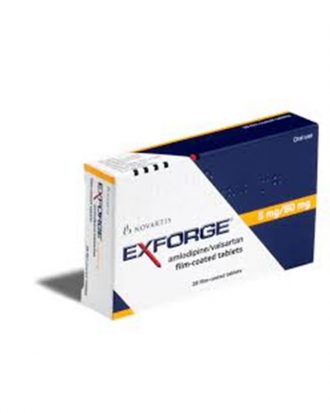Cavapro (Tab) 75mg
৳ 6.00
Indications
Therapeutic Class
Pharmacology
Dosage & Administration
Elderly: although consideration should be given to initiating therapy with Irbesartan 75 mg in patients over 75 years of age, dosage adjustment is not usually necessary for the elderly
Paediatric: Irbesartan is not recommended for use in children and adolescents due to insufficient data on safety and efficacy.
Interaction
Potassium supplements and potassium-sparing diuretics: based on experience with the use of other drugs that affect the renin-angiotensin system, concomitant use of potassiumsparing diuretics, potassium supplements, salt substitutes containing potassium or other drugs that may increase serum potassium levels (e.g. heparin) may lead to increases in serum potassium and is, therefore, not recommended.
Lithium: reversible increases in serum lithium concentrations and toxicity have been reported during concomitant administration of lithium with angiotensin converting enzyme inhibitors. Similar effects have been very rarely reported with irbesartan so far. Therefore, this combination is not recommended. If the combination proves necessary, careful monitoring of serum lithium levels is recommended.
Non-steroidal anti-inflammatory drugs: When angiotensin II antagonists are administered simultaneously with non-steroidal anti- inflammatory drugs (i.e. selective COX-2 inhibitors, acetylsalicylic acid > 3 g/day and non-selective NSAIDs), attenuation of the antihypertensive effect may occur. Additional information on irbesartan interactions: In clinical studies, the pharmacokinetic of irbesartan is not affected by hydrochlorothiazide. Irbesartan is mainly metabolised by CYP2C9 and to a lesser extent by glucuronidation. No significant pharmacokinetic or pharmacodynamic interactions were observed when irbesartan was coadministered with warfarin, a drug metabolised by CYP2C9. The effects of CYP2C9 inducers such as rifampicin on the pharmacokinetic of irbesartan have not been evaluated. The pharmacokinetic of digoxin was not altered by coadministration of irbesartan.
Contraindications
Side Effects
Pregnancy & Lactation
Lactation: Irbesartan is contraindicated during lactation. It is not known whether irbesartan is excreted in human milk. Irbesartan is excreted in the milk of lactating rats. Precautions: Intravascular volume depletion: symptomatic hypotension, especially after the first dose, may occur in patients who are volume and/or sodium depleted by vigorous diuretic therapy, dietary salt restriction, diarrhoea or vomiting. Such conditions should be corrected before the administration of Irbesartan.
Precautions & Warnings
Use in Special Populations
Hepatic impairment: no dosage adjustment is necessary in patients with mild to moderate hepatic impairment. There is no clinical experience in patients with severe hepatic impairment.
Hypertensive patients with type 2 diabetes and renal disease: the effects of irbesartan both on renal and cardiovascular events were not uniform across all subgroups, in an analysis carried out in the study with patients with advanced renal disease. In particular, they appeared less favourable in women and non-white subjects.
Hyperkalaemia: as with other drugs that affect the renin-angiotensin-aldosterone system, hyperkalaemia may occur during the treatment with Irbesartan, especially in the presence of renal impairment, overt proteinuria due to diabetic renal disease, and/or heart failure. Close monitoring of serum potassium in patients at risk is recommended.
Aortic and mitral valve stenosis, obstructive hypertrophic cardiomyopathy: as with other vasodilators, special caution is indicated in patients suffering from aortic or mitral stenosis, or obstructive hypertrophic cardiomyopathy.
Primary aldosteronism: patients with primary aldosteronism generally will not respond to anti-hypertensive drugs acting through inhibition of the renin-angiotensin system. Therefore, the use of Irbesartan is not recommended.
General: in patients whose vascular tone and renal function depend predominantly on the activity of the renin-angiotensinaldosterone system (e.g. patients with severe congestive heart failure or underlying renal disease, including renal artery stenosis), treatment with angiotensin converting enzyme inhibitors or angiotensin-II receptor antagonists that affect this system has been associated with acute hypotension, azotaemia, oliguria, or rarely acute renal failure. As with any anti-hypertensive agent, excessive blood pressure decrease in patients with ischaemic cardiopathy or ischaemic cardiovascular disease could result in a myocardial infarction or stroke.






Reviews
There are no reviews yet.